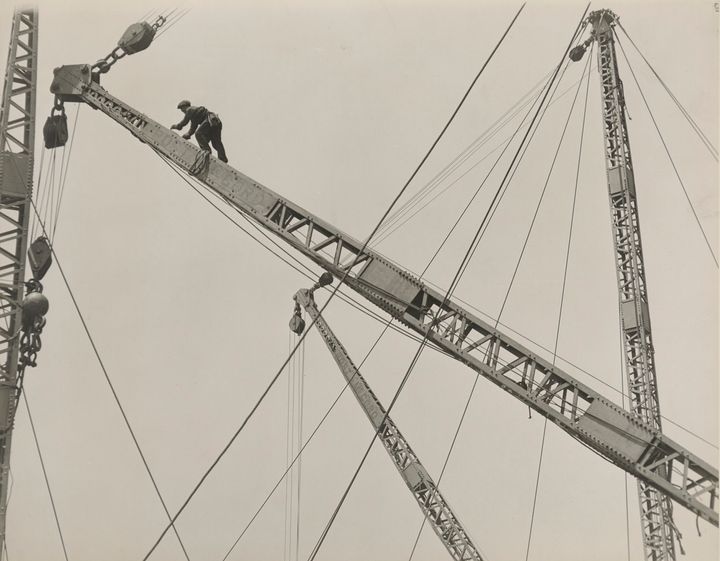Looking Past The Obvious

This series of posts is about the importance of learning to build a theory about what our business is and should be. Ours is a liminal world, a place of ambiguity and disorientation where a new way of thinking is still emerging.
The basic idea is if we don’t actively engage with theorizing we’ll simply end up making minor variations on a theme and calling it innovation. Like designing a blue orange. "It’s like an orange, but blue. And we’re going to call it a blue."
A common phrase we hear at the moment is ‘like Uber… but for [insert industry x]. This just isn't helpful to anyone. Drawing a comparison is a natural response when we're thinking about the future. It's also hard to define something about yourself that doesn’t involve a comparison to others.
And who we compare ourselves to provides a limit of explanation about who we are, what we’re seeking to achieve and where we’re going. Even the phrase we often read from the VC community "how are you different?" is loaded. Different to what also means similar to what.
Differentiation is a time honoured business strategy and I'm not advocating abandoning it. It’s just that we need to be careful about the language we use. Differentiation leads to being different which means compared to who and what? Before we know it we’re defining ourselves in terms of other people. And following that path leads to a dangerous place of external validation and a sense of being subject to the whims of the world.
Building a theory about what our business is and what it should be helps get past the traps of social comparison. It opens up other traps but that’s what I'm writing about on this blog. One thing that often gets overlooked in building theory is the obvious.
When enough people believe in something social proof encourages us to believe the same thing. Critical elements in our business can become obvious in this way and taken as a given. Sometimes the only way to see past the obvious is to take a large enough step back to enlist the help of an historical perspective.
For example look at the growing realization of the importance of generalists in business. They avoid the trap of expertise, the ever narrowing of perspective, the self defeat of positional competition, the sterility of homogeneity and the need to get it exactly right. Our business world is built for tight specialization but it wasn't always this way.
The merchants of ages past were predominantly generalists. Certainly there was concentration of attention and effort, but not to the extent we have taken things to do. Our world is so complex that hiring all specialists will result in a staff so bloated we’ll go out of business.
What’s been obvious to us, that specialization is fundamental to professional success, is only a recent truth. And it’s in the process of being overturned. My point here is that the first thing we need to question is the obvious when building a business that makes a difference to the world.
When we hear someone say "that’s obvious", we should immediately ask ourselves ‘who is it not obvious to?’ and then go and have a conversation with that person. We should ask ourselves ‘why is this obvious?’ and ‘are there elements to this that aren't obvious?’ Or ‘what would have to change for this not to be obvious?’
The term ‘obvious’ took on the meaning of ‘plain to see’ in the mid 17th century. Before that it meant ‘frequently encountered’ and earlier ‘commonplace’. But the root is all about ‘being in the way’.
It’s related to ‘obviate’ which means to ‘do away with’, in the sense that something is in the way, something that moves against us. The next time you hear someone say "that’s obvious", first check to see if it’s a passive aggressive put down. Then check to see if there is something so basic that everyone assumes it to be true.
And if so, then change your perspective. View it as something that is in your way, something that is blocking your vision, something you need to get past or over.
Not accepting the obvious is important because it gives us the chance to see unexpected connections in the everyday and commonplace. Once we discover a ‘new’ connection we can then start thinking through the implications. One of which should be, why didn't we see this earlier.
A new possibility set will emerge and, at the very least, just making the observation ‘that’s interesting’ serves as a clue that there is something worth exploring.
Because that's what theorizing about our business is. Exploration. And we're the only one's with the map.



